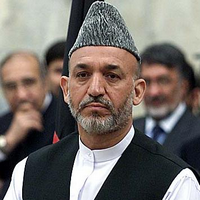Invariably, when Americans engage in nation-building exercises around the world, it is hoped that the indigenous leaders that emerge will be cast in the mold of our Founding Fathers. We are looking for the George Washingtons, Thomas Jeffersons, and James Madisons to take the helm in places like Iraq and Afghanistan. Inevitably, we are disappointed when the Hamid Karzais, the Nouri al-Malikis and others fail to live up to these often-idealized expectations.
Maybe it would help if we substituted a different set of historical names and role models. If we can't get a Washington in Afghanistan, we'd certainly do well to settle for a local version of Plutarco Elias Calles, crossed with a bit of Anton Cermak.
Cermak -- the Cook County Board president from 1922-1931, and then the mayor of Chicago from 1931-1933 -- was a Czech-American politician who realized the importance of building cross-ethnic coalitions as a key to successful and sustainable governance. He successfully welded together a number of Chicago's ethnic communities -- Jews, Italians, African-Americans, Irish and different Eastern European nationalities -- into a cohesive political bloc. He did so as one of the proponents of the "balanced ticket" approach, running a slate of candidates to appeal to a broad cross-section of ethnic groups and economic interests. Cermak is often considered to be the father of Chicago's formidable Democratic machine. In a fractious society like Afghanistan or Iraq, where there are deep ethnic, linguistic and sectarian divides, and where recent elections have demonstrated the weakness -- or near-absence -- of overarching, national political identities, old-time Chicago politics, for all the corruption they engendered, would still be an important and crucial step forward.

